'Eliminate peaks and valleys': Nick Krall explains his plan for the Cincinnati Reds
GOODYEAR, Ariz. – In the last six months, Cincinnati Reds general manager Nick Krall restructured the Reds front office. He hired new minor league pitching and hitting coordinators, continued to add prospects with a specific skill set and prioritized improving the “player pipeline” and the Reds player development system.
What the Reds haven’t done is add to their big league roster. The Reds are relying on internal changes to get them their first postseason win since 2012.
More: Daugherty: Designated hitter was long overdue in the National League
Since Krall took the job in October, 2020, the Reds’ biggest moves have been directly related to cutting payroll. On Saturday, Krall said the Reds are currently fielding trade calls. There’s expected to be interest in starting pitchers Luis Castillo, Sonny Gray and Tyler Mahle.
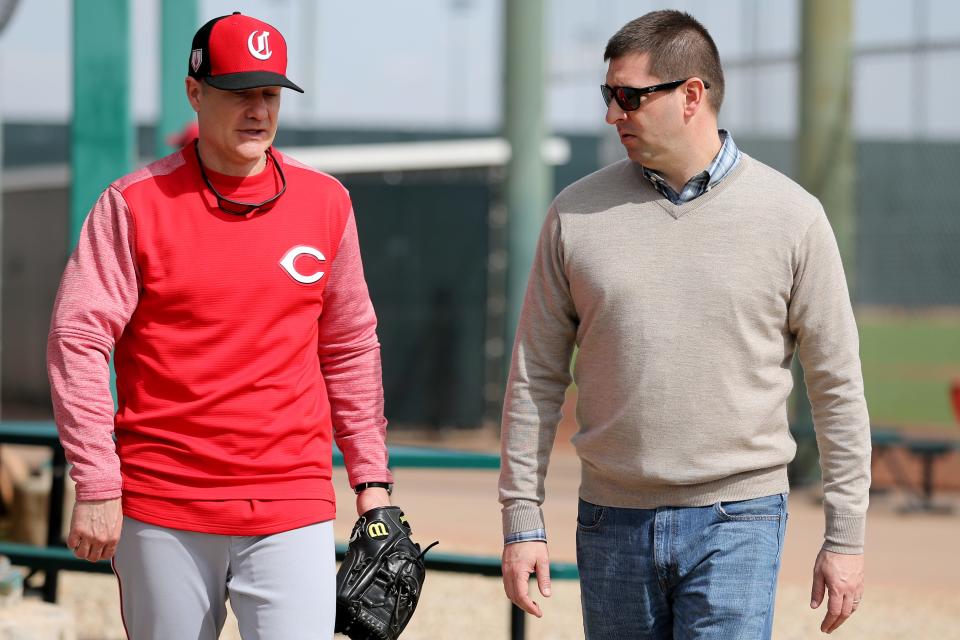
Krall said the Reds are evaluating every option, which could include dealing one of their more established players. Due to payroll constraints, the Reds aren’t in the running for the top-of-the-market free agent hitters and starting pitchers. Between now and the start of the season, Krall identified bench bats, starting pitching depth and relievers as needs the Reds could address.
More: GM Nick Krall: Cincinnati Reds have not been in talks with free agent Nick Castellanos
But Krall said that there’s a notable difference between rebuilding and his vision for a “long-term and sustainable approach.” Between 2014 and 2019, the Reds averaged fewer than 70 wins. With behind-the-scenes changes, Krall believes that the Reds have set themselves up for more consistent success over the next 10-year window.
More: 'They believe in me': Catcher Tyler Stephenson is ready to be the Reds everyday catcher
“We’re trying to eliminate peaks and valleys, that’s where we need to go,” Krall said. “We need to figure out how to continue to build through our player pipeline, player development and scouting. That’s got to be the base of everything we do. If that’s the base, that’s how we’ll build long-term success and sustainable success.”
On Saturday, Krall explained his plan for the Reds in a Q&A with The Enquirer.
What are realistic expectations for how much the roster can change between now and the start of the regular season?
Maybe a little, maybe a lot. We’ve got open spots, so you’re going to have guys, (non-roster invitees) coming on, players on this team. I don’t want to speculate on that. Right now, our roster is what it is. Would we like to make a couple of additions? Sure. Would we like to make this club better? Sure.
We can pick up some (non-roster invitees) and some free agents. We’re active in everything we’re doing, and we’ll figure out the best path moving forward.
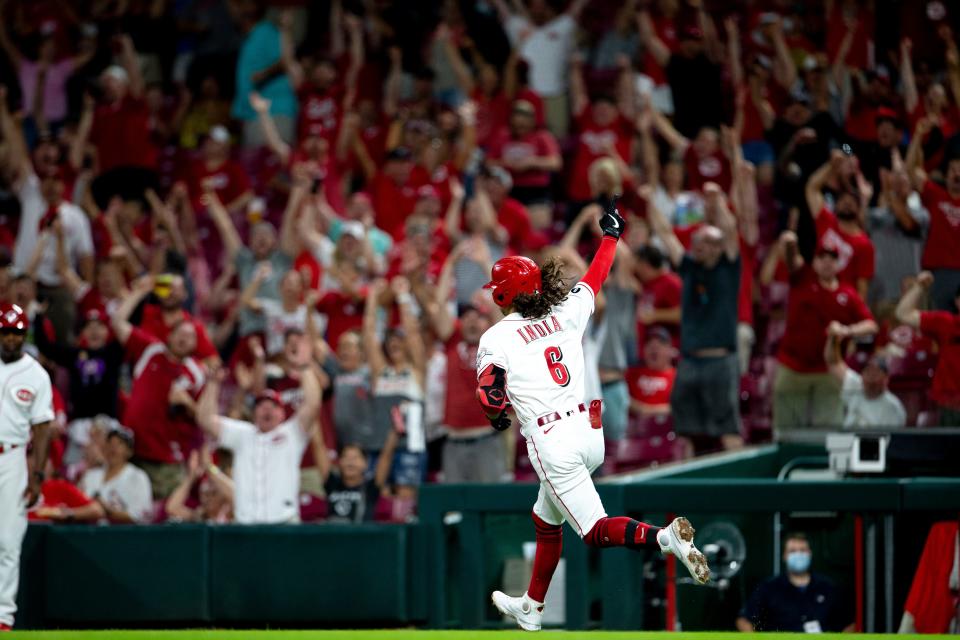
You’ve expressed the goal to have a “long-term and sustainable” approach. How do you balance sustainable, which is more of a straight line, with a long-term approach, which can include different windows of success and peaks and valleys?
That’s the problem, our vision is long-term and sustainable. When you look at long-term, we have had the peaks and valleys (in the past). We want to create a model of long-term success that is sustainable. Whether it starts today, tomorrow or whenever.
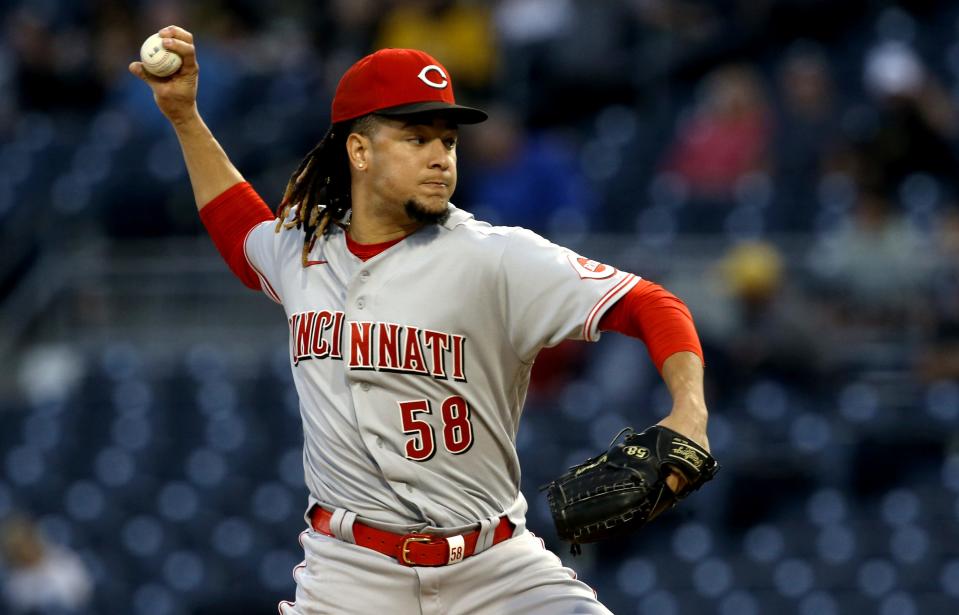
You have a short-term window with a number of players who can become free agents by the end of the 2023 season, including Luis Castillo, Sonny Gray, Tyler Mahle, Jesse Winker and potentially Joey Votto. You also have a young core you’re building. Is it a goal for success to be linear from one window to the next?
It would be great not to play in windows. The goal is to be successful every year. The goal is to win a World Series every year. But building to that point is going to be the key.
More: 'It happened so quickly': Joey Votto arrives in Goodyear as spring training begins
How we’re going to get there is going to be the key. It’s going to be through player development and the player pipeline. The only way you can build sustainability in this market is being able to build from that group and build a sustainable group.

A pivot point for the Reds organization was 2014. Coming off the playoff season, the Reds pivoted toward a rebuild. What makes this structure better suited to avoid that valley that happened from 2014 to 2019?
One of the reasons that we didn’t have success was that with the international market, we ranked 30th in the production of the younger market internationally in a 10-year period. That can’t happen. We’ve got to make sure our focus is still on the player pipeline.
More: Reds invite 2021 first round pick Matt McLain to big league camp
We’ve got to make sure we’re doing everything we possibly can to draft, sign and acquire quality players and continue to put players in that pipeline. Those are the players that will get to the big leagues. They’ll be the players used in trades, in the big leagues and who are going to do everything they need to do to get us to the postseason.
2021 was your first full calendar year in your current role, and there was a lot of restructuring in the front office this offseason. What were you looking to accomplish?
We moved Brad Meador from a scouting director role to oversee player development and scouting. It builds consistency through international scouting and amateur scouting into player development. It allows (farm director Shawn Pender and others) a direct resource to go to that’s not just me on a direct basis. We needed to set our office up in the best way to be successful moving forward.
More: The story behind Reds prospect Elly De La Cruz
We’ve changed the way we’ve done things in the draft, developed players and used the international market over the last three years. We really made a push to focus on the better athletes and more starting pitchers and to develop those players in the system.
We have a system that is heavy with that at the bottom levels. Not as much at the top. We’re trying to get some guys up here. We have top-end prospects at the upper levels, which is great. From a depth standpoint, we’re continuing to get players who can contribute.
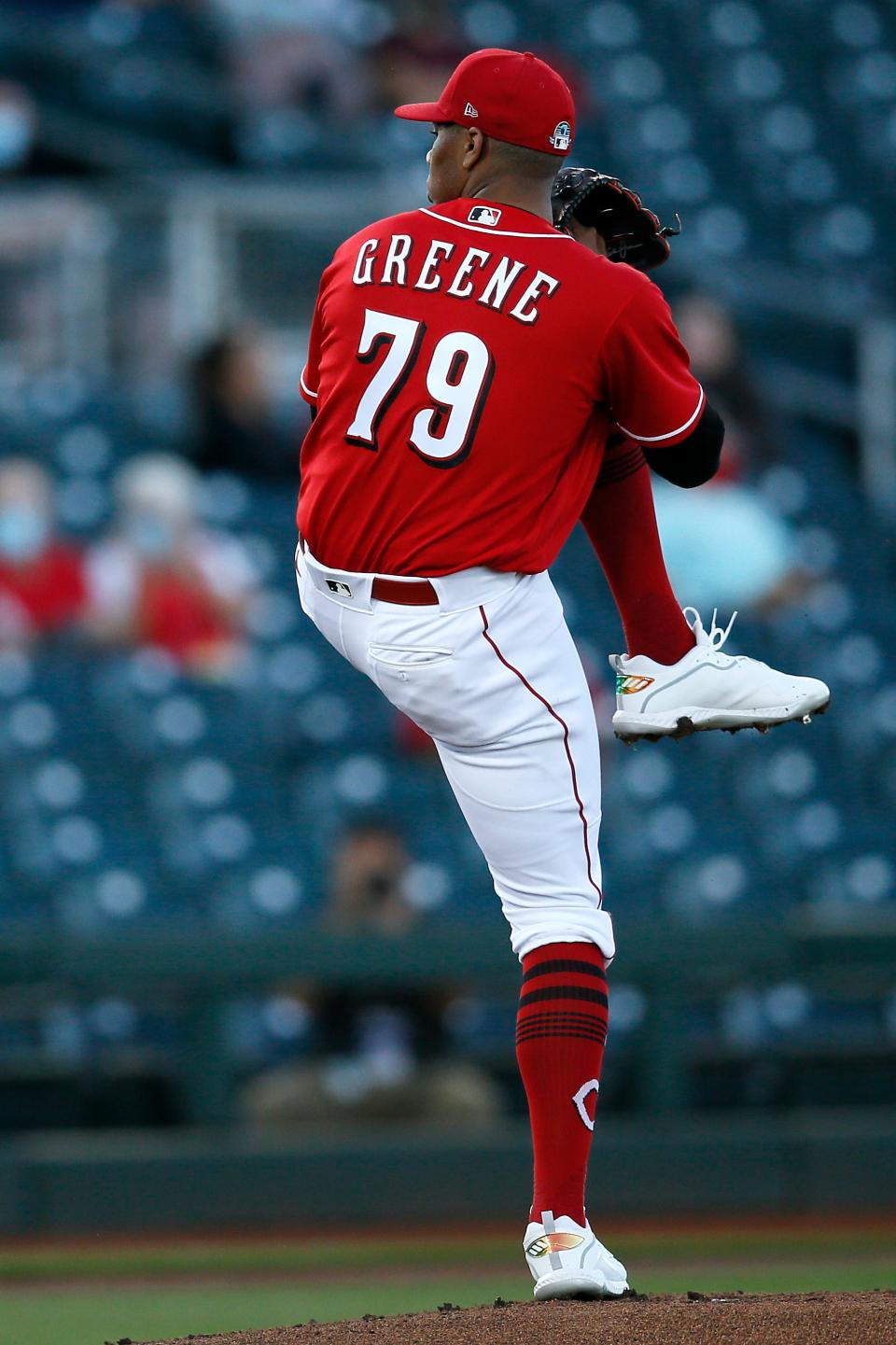
In the draft and the international market, you’ve prioritized adding athletic players at catcher, shortstop, center field and pitcher. Do you take a similar strategy when evaluating talent closer to the major league levels?
Yes and no. We want to add as many premium athletes up the middle as possible. You can always move a shortstop to third base or move a shortstop to first base. You can’t move a first baseman to shortstop. You can always move a center fielder to a corner outfield spot.
More: Spring training observations: Six Reds players who are standing out in Goodyear
We need premium athletes up the middle. We need guys that can run the bases. We need players that can hit, and we want guys that can use the bat. It’s not necessarily looking for power. In our ballpark, if you can hit, you can hit home runs in our ballpark. It works. We want guys who can use the whole field and hit line drives.
More: Nightengale: Reds ignoring their competitive window as farm system shows improvement
With pitching, we want starting pitching. We need to develop a good core of pitching in our ballpark or we’re not going to have success. It’s harder to pitch in our ballpark than in bigger ballparks.
Is Jose Barrero reporting to camp as a shortstop or a center fielder, and will he compete for the starting shortstop spot?
He’s a shortstop. He’s coming in, and we’ll evaluate him where he is.
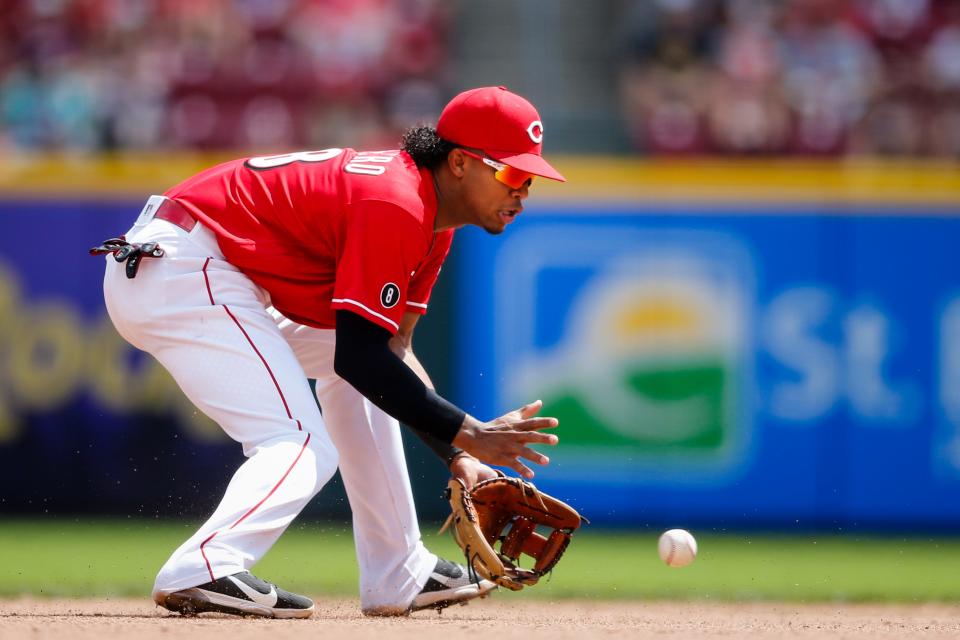
Is Nick Senzel focusing on center field this season?
Yes.
For Nick Lodolo and Hunter Greene, what are the qualities they can show you to start the year in the big leagues?
It’s about, are they ready for the jump and evaluating that person on a holistic view. Are they ready for the jump? Is their stuff ready for the jump? Are they throwing enough strikes? Are they ready for the successes and failures? Nick only threw 60 innings last year, so evaluating where he is from a long-term progression for a season is another key.
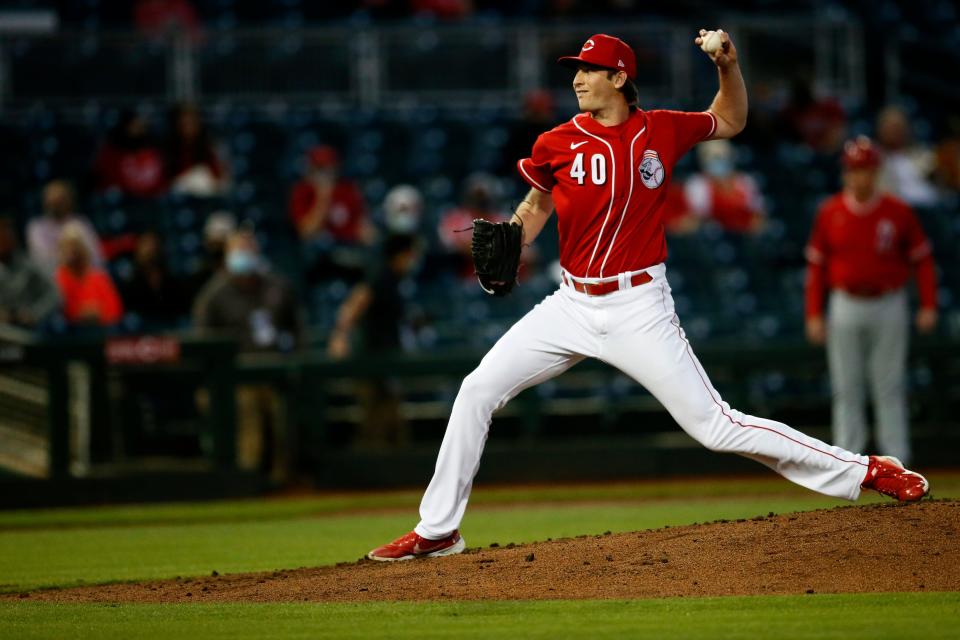
In the bullpen, what did you learn from how you constructed the bullpen last season that can help you have a bullpen with a better ERA this season?
The guys we got, we had a lot of mix and match guys last year. We’ve got players coming in like Art Warren. He was hurt for a portion of last year, but he was able to take a job in the bullpen. We’ve got some young players that are Daniel Duarte, Alexis Diaz, Jared Solomon, who are going to come in and compete for spots. Dauri Moreta.
More: ‘Unlike anything I’ve ever caught’ How pitcher Graham Ashcraft rose up the ranks
We’ve got a better group of younger, closer players in regards to our bullpen. We were a little bit short, coming into last year, and we tried to force some things. We’ve got some good players up and down who have a chance to add quality there.
David Bell signed his extension last September. How important has that been?
Consistency is great. It’s really good for our players and our staff and everyone involved. David has done a really good job with the last couple teams, and made the playoffs in 2020. It gives the players in the clubhouse a baseline for everything we’re trying to do, whether it’s initiatives or dealing with players.
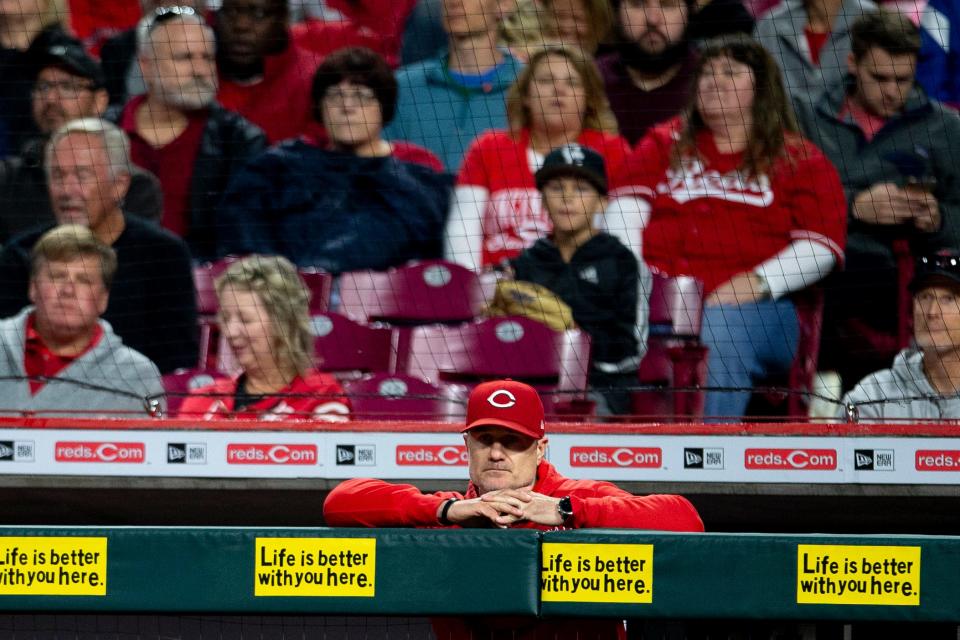
This article originally appeared on Cincinnati Enquirer: Nick Krall explains his plan for the Cincinnati Reds


